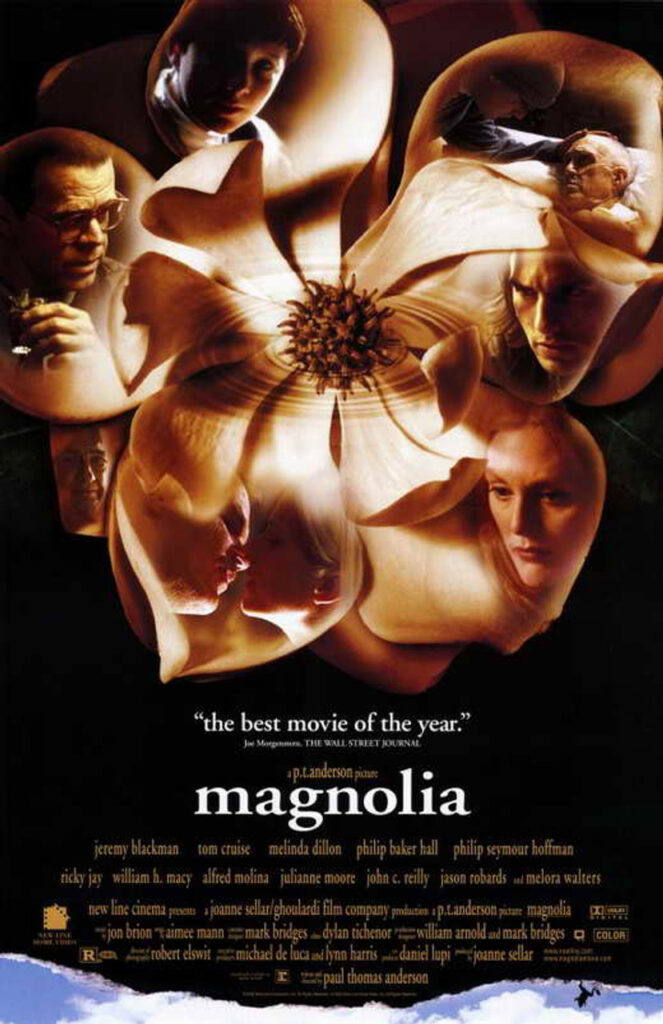
What do you get when you’re a young auteur and your film is a surprise hit? The answer is final cut privileges, and if you’re Paul Thomas Anderson, the result is Magnolia. Anderson was so hot after Boogie Nights that New Line Cinema head Michael De Luca granted Anderson a deal with final cut privileges without hearing a pitch. Realizing he would never be in that position again, he acted fast. As always, potential spoilers ahead.
Magnolia is his ambitious follow-up to Boogie Nights (an already ambitious film), which follows a dozen different intersecting characters on a rainy day in the San Fernando Valley. It didn’t start this way, though. Before he started writing, Anderson said the title, Magnolia, was the first thing that popped into his head. Anderson had initially planned to film something small-scale that he could film in 30 days. As he kept writing, however, the script kept blossoming (no pun intended). I have a published copy of the screenplay released in conjecture with the film (thank you, eBay). In the forward of the script, Anderson talks about how this was all written from the gut, but being a “new, hot, young director,” you can get away with not cutting anything. He used those words, but we’re not here to discuss his humility. Anderson says one hundred ninety-five pages later, this is a “script written directly from the gut.” In that same way, Anderson talks about his love of Los Angeles, the city he grew up in, and his desire to make Magnolia the “mother of all movies about the San Fernando Valley.”
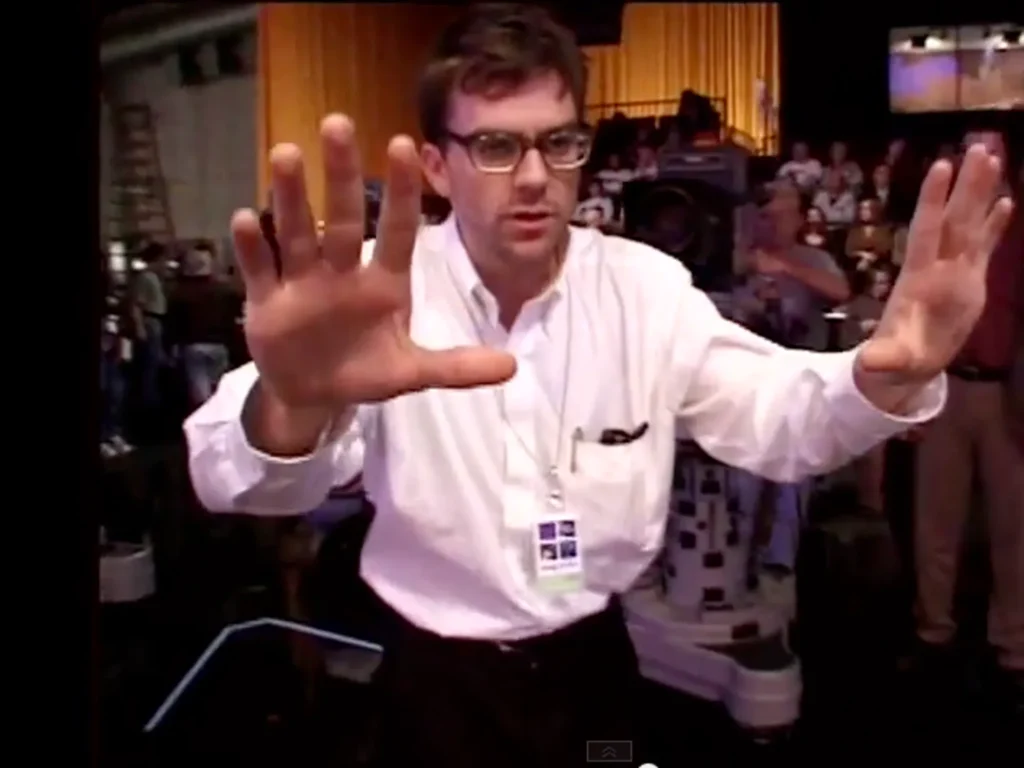
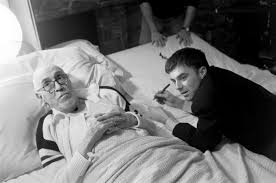
As Anderson wrote the script, he was in the habit of listening to the music of his friend, Aimee Mann. He went so far as to borrow a line from her song “Deathly,” where Claudia (Melora Walters) asks Jim Kurring (John C. Reilly), “Now that you’ve met me, would you object to never seeing me again?” The film even includes a sequence where the characters sing Mann’s song “Wise Up.” Anderson paid back the favor by having Anderson write songs for the film. One of those songs, “Save Me,” was later nominated for the Academy Award for Best Original Song. Speaking of Claudia, Anderson’s first image was of Melora Walters smiling at the camera. The following image was Philip Baker Hall as her father and TV game host, Jimmy Gator. The nice thing about Boogie Nights was that it gave Anderson a sort of repertory company he would revisit in his subsequent films. Walters and Hall were undoubtedly part of it.
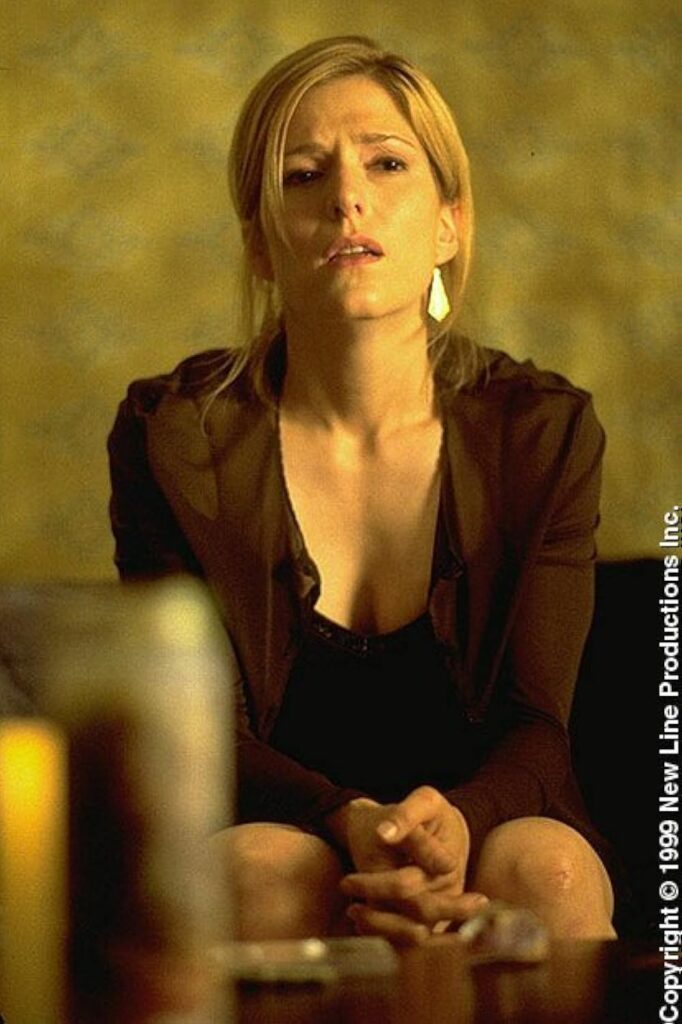
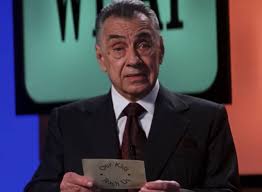
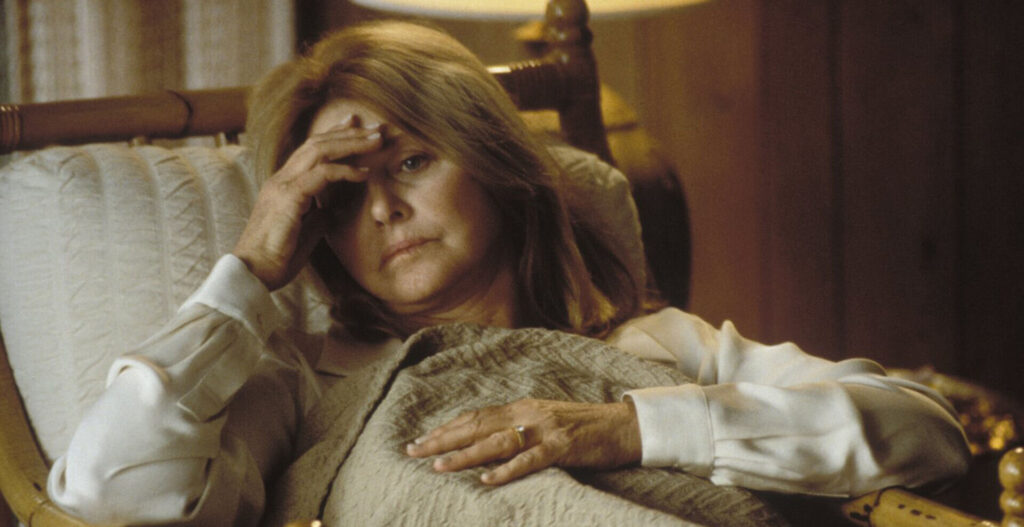
In contrast to his role as Reed Rothchild in Boogie Nights, John C. Reilly is given the plum role of Jim Kurring in this film. Reilly himself helped to develop the character. In the summer of 1998, Reilly grew a mustache, and out of boredom, he and Anderson went around town shooting footage in the style of COPS. During this process, Anderson and Reilly came up with lines and character traits for the character of Jim. Feeling he was typecast as either a “heavy or semi-retarded man child” (his words), Reilly asked Anderson to have him do something relatable, like falling in love with a girl. Anderson was intrigued because he hadn’t seen Reilly as a love interest before. I have to say, Reilly wasn’t wrong about being typecast. He played a heavy in The River Wild and a “semi-retarded man-child” in Boogie Nights. Seeing him as a down-on-his-luck, love-struck police officer was a treat, at least for me.
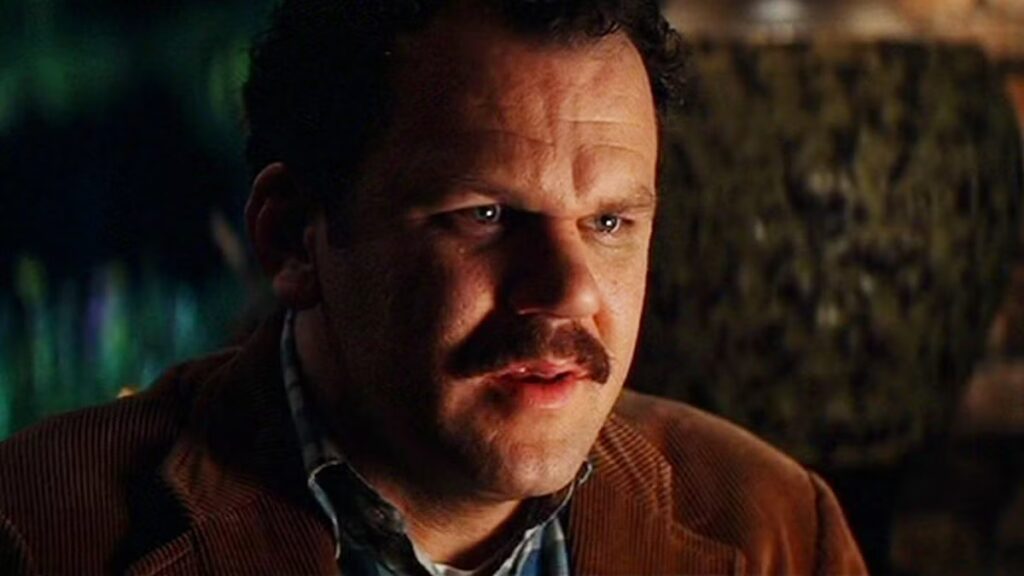
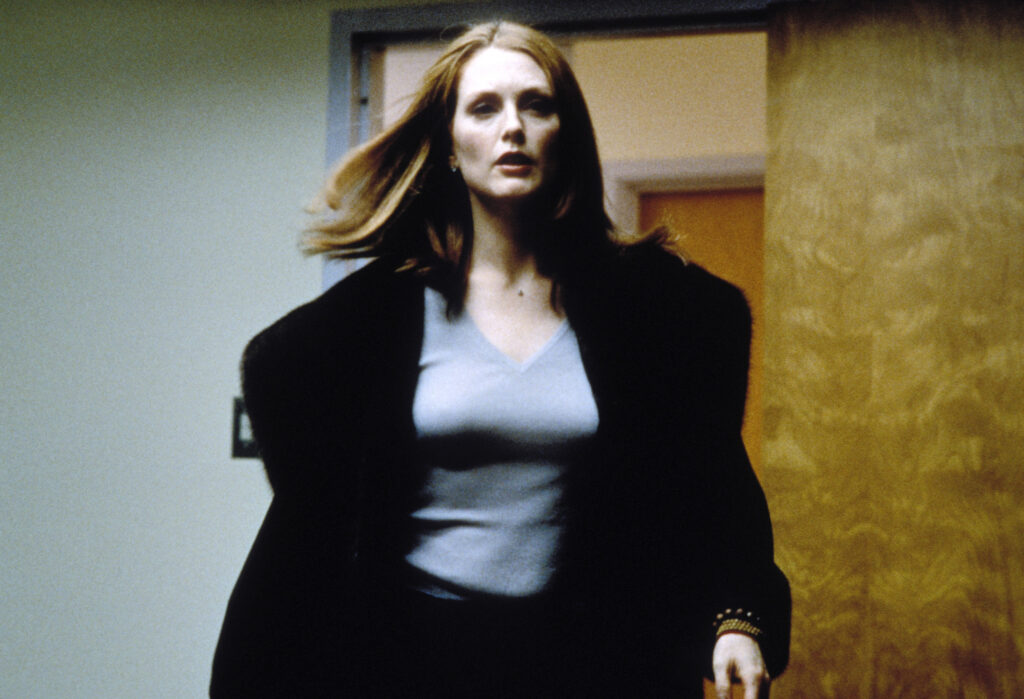
After playing the complex role of Scotty J. in Boogie Nights, Anderson wanted to cast Philip Seymour Hoffman in an uncomplicated role. Anderson wrote the part of the nurse, Phil Parma, specifically for him. Parma is direct in his motives, takes pride in a well-done job, and cares for Earl Partridge (Jason Robards), helping him in his final days. Anderson wrote the role of the drug-induced Linda Partridge for Julianne Moore. There are similarities and differences between her character in Boogie Nights. Both have substance abuse issues and are covering up dark pasts, but Linda is much more manic. For William H. Macy, who Anderson thought was afraid of “big, emotional parts,” she wrote him a “big, emotional part.” As Quiz Kid Donnie Smith, Macy is heartbreaking when you realize his intention for everything he does in the film is for unrequited love. It’s all perfectly summed up when he tells Kurring, “I have so much love to give, I just don’t know where to put it all.” It’s a sad, yet relatable line. Unfortunately, I understand that all too well. Other returning actors from Boogie Nights include Alfred Molina as Solomon Solomon, Ricky Jay as Burt Ramsey, and Luis Guzman as well, Luis Guzman.
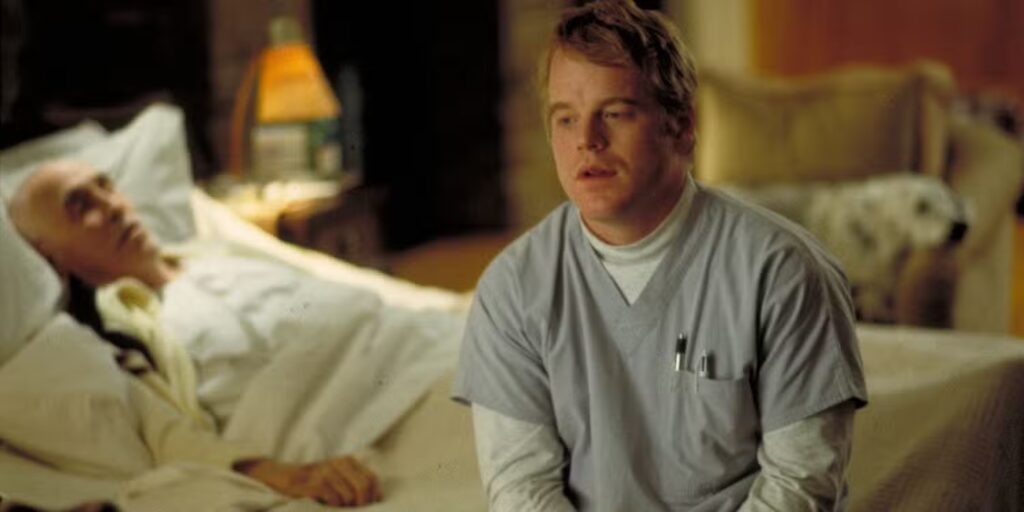
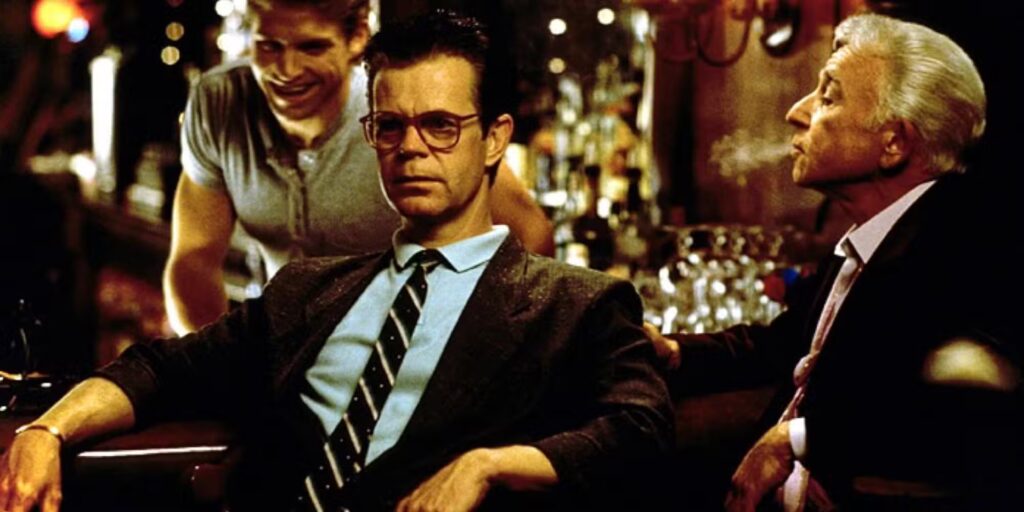
The biggest casting coup for Anderson was Tom Cruise as Frank T.J. Mackey. The actor was a fan of Boogie Nights and expressed interest in working with Anderson. Anderson visited him on the set of Eyes Wide Shut and began to write the role of Mackey with him in mind. Cruise was intrigued, but nervous about the role. It makes sense why he would be anxious. The biggest movie star in the world playing a misogynistic television personality (putting it mildly) would be a significant risk to his image. Luckily, Cruise was persuaded by Anderson and De Luca to take the part. Despite not getting along during the production of Boogie Nights, Anderson wanted to cast Burt Reynolds as Earl Partridge, a television producer dying of cancer. Reynolds turned down the role. Anderson then offered the role to Jason Robards, who had to turn it down due to a staph infection. Anderson offered the film to George C. Scott, who turned it down due to the cursing. Luckily for Anderson, Robards’s infection disappeared, and he took the part. Robards called the role “prophetic,” playing a character going out in life as he prepared to do the same. This was Robards’ final role, as he would die in December 2000. Ironically, had he accepted the role, Scott’s film would have been a posthumous release for Scott, who died in September 1999.
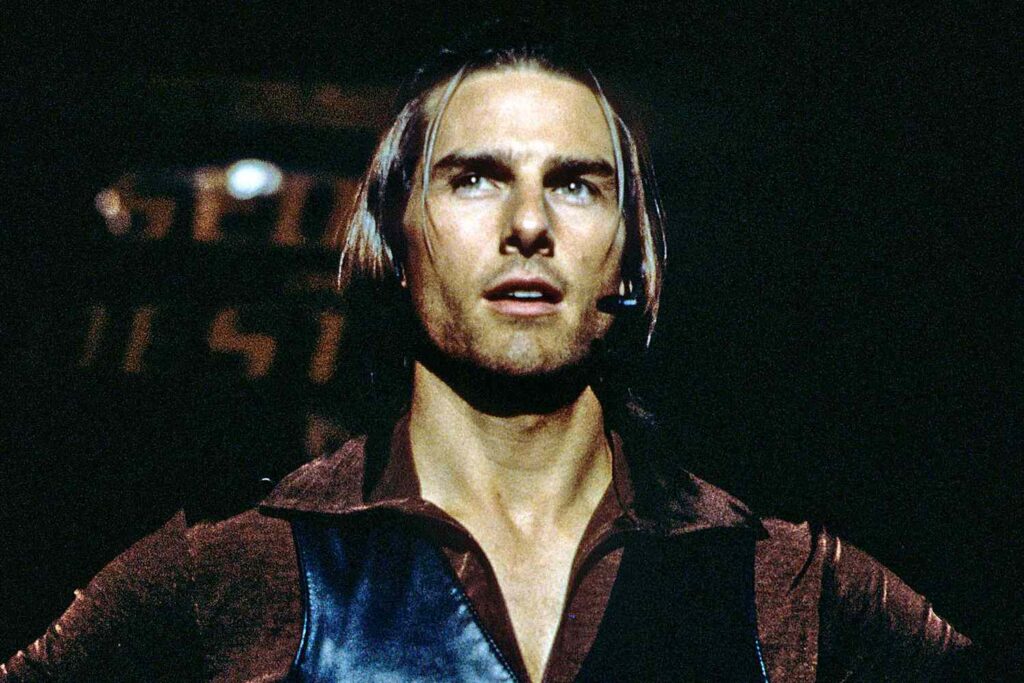
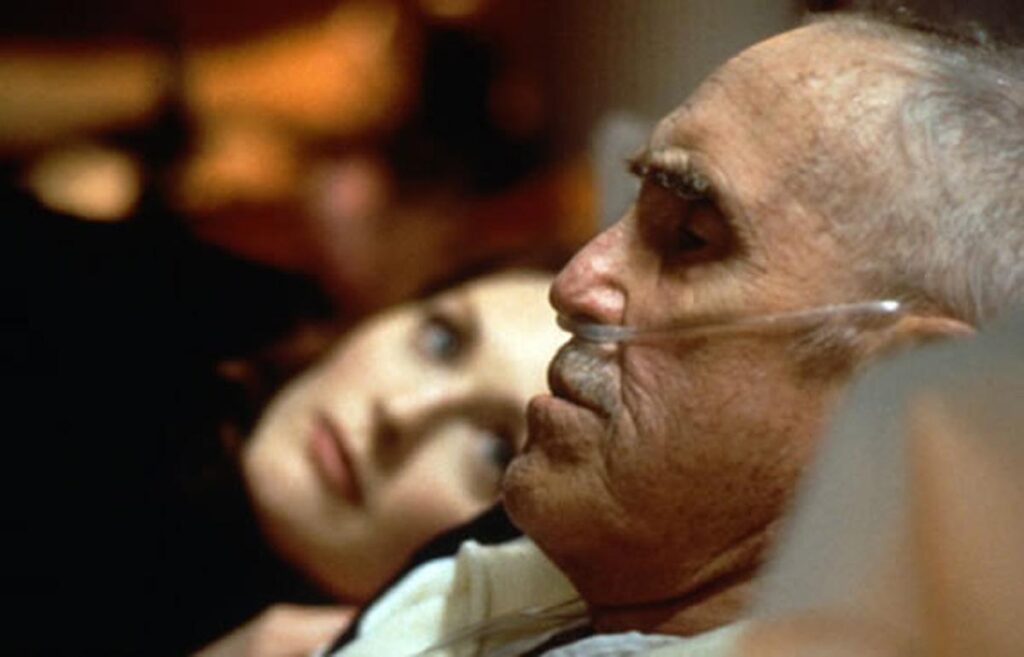
Filming began in January 1999 and wrapped in June, going 12 days over schedule. The production team used a warmer color palette, more specifically, greens, browns, and off-whites, the color of the magnolia flower. For the section of the prologue set during 1911, Anderson used a vintage, hand-cranked Pathe camera that would have been used during the era. During post-production, Anderson and the studio hit a snag. Anderson was not fond of the trailer or poster that New Line’s marketing team put together. He also believed they did a poor job marketing Boogie Nights. Anderson went as far as creating his own poster, editing the trailer himself, and even writing the liner notes to the soundtrack. He also pushed back when the studio wanted to use Cruise as a selling point, arguing that the film needed to be sold as an ensemble. Anderson eventually got his own way, but in doing so, he burned bridges. This would be the last film he would make with New Line Cinema. Reflecting on it later, Anderson did admit that he reacted in a “knee-jerk way” and needed to learn to stand up for his ideas without “being a jerk.”
It’s a bit of a tangent, but this is one of the reasons I have mixed feelings about Anderson. I’ve read stories that he was stubborn, egotistical, and had a terrible temper. There’s no doubt that he’s talented, but that doesn’t give people the right to be rude to others. Giving him the benefit of the doubt, I think his arrogance of being a “hot young director” and the scorn he faced on Hard Eight formed his personality at the time. However, I’ve heard all these stories of a younger Anderson. Now in his mid-fifties, I’m sure he’s mellowed with age, or at least I hope he has.
The film was finally released in limited release in December 1999 and a wide release in January 2000. The critical response was generally positive. Roger Ebert went as far as calling it the best film of 1999 after Being John Malkovich. Cruise’s performance was widely praised. At the 2000 Academy Awards, the film earned three nominations: Best Original Screenplay, Best Original Song (“Save Me”), and Best Supporting Actor for Cruise. Anderson lost the original screenplay to Alan Ball for American Beauty, and the best original song went to “You’ll Be in My Heart” by Tarzan. In my heart, I’m happy with those two wins. As much as I liked “Save Me,” I liked “You’ll Be In My Heart” more. I think it’s a better song overall, but it also holds nostalgia. I remember it playing on the radio often as a kid, and my mom commenting that the song makes her think of me. I’m sure my mom doesn’t remember that, but I do. It would be a pleasant surprise for her if she read this article. This may be an unpopular opinion, but I think Tarzan has the best soundtrack of any Disney movie. Elton John and The Lion King are great, but I think Phil Collins and Tarzan are better.
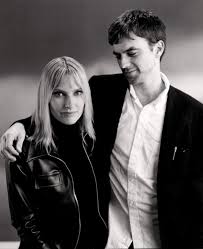
I’ve spoken about the film’s origins, release, and reception, but not the film itself. I will say that overall, I do like the film. That being said, I do have issues with it. I believe it can sometimes be too pretentious for its own good. In that same vein, I think it’s overstuffed. The unfortunate part, I believe, is the way the film is structured; you can’t cut one storyline without it impacting the other. For instance, I like the Claudia/Jim storyline, but dislike the Jimmy/Claudia storyline. However, the relationship between Jimmy and Claudia impacts her behavior around Jim. I dislike the character of Linda, but I know she is crucial to the storyline with Phil and Earl, which, in turn, plays a vital role in the Mackey storyline. There were also duplicate character types, which are tricky to balance. I like the parallel between Stanley Spector and Donnie Smith. Until Stanley takes a stand against his dad, he runs the risk of becoming just like Donnie, whose parents took all of his money and stole his childhood. On the flip side, I think the characters Earl and Jimmy are too alike. Both are television veterans who have done horrible things to their children (abandonment and molestation, respectively), both have regrets, and both are dying of terminal cancer. They’re too similar in my opinion.
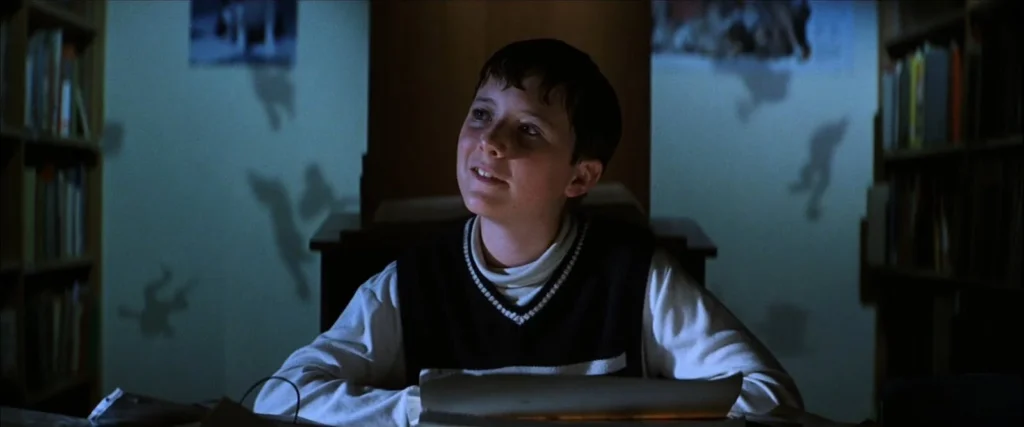
There’s a lot of “on the nose” dialogue like that that bugs the hell out of me. Examples include: “this is the scene in the movie where you help me out,” or when talking about coincidence: “if that happened in a movie, I wouldn’t believe it.” Anderson tries too hard to link the characters and explore the relationship between reality and coincidence. Then, there’s the infamous line, “The Book says ‘We might be through with the past, but the past ain’t through with us.’” Don’t get me started on the raining frogs. I know it’s a biblical reference, but that’s pushing the boundaries. It’s too unbelievable in my opinion. Perhaps that was Anderson’s intention.

I won’t go in-depth because I explored this in a previous retrospective, but I believe Frank T.J. Mackey is Tom Cruise’s best acting performance. I want to stress, it is not my favorite film of Tom Cruise (that would be a tie between Mission: Impossible – Fallout or Top Gun: Maverick), but I believe that from a sheer acting standpoint, Magnolia is Cruise’s best performance. It edges out his first nomination, Born on the Fourth of July, which is also great. It does help, I think that he’s only in a small chunk of the film. Yes, you learn to understand the character’s motives, but he’s so reprehensible at times that you wouldn’t be able to center a whole movie around him and have the same impact. I’m glad Cruise earned a nomination for Best Supporting Actor, but I’m miffed that he lost. The scene where he has a cathartic breakdown after confronting his father should have sealed a win for him. What kills me is that Michael Caine took home the award for The Cider House Rules. That is the “safest” of the nominated performances. Literally, any of the other nominees (Haley Joel Osment for The Sixth Sense, Michael Clarke Duncan for The Green Mile, Jude Law for The Talented Mr. Ripley) would have been better winners. It’s a shame that Magnolia remains Cruise’s last nominated performance (he was nominated as a producer on Top Gun: Maverick), but I have hope that as he begins to take on more characters that aren’t Ethan Hunt, he will be back as a nominee someday.
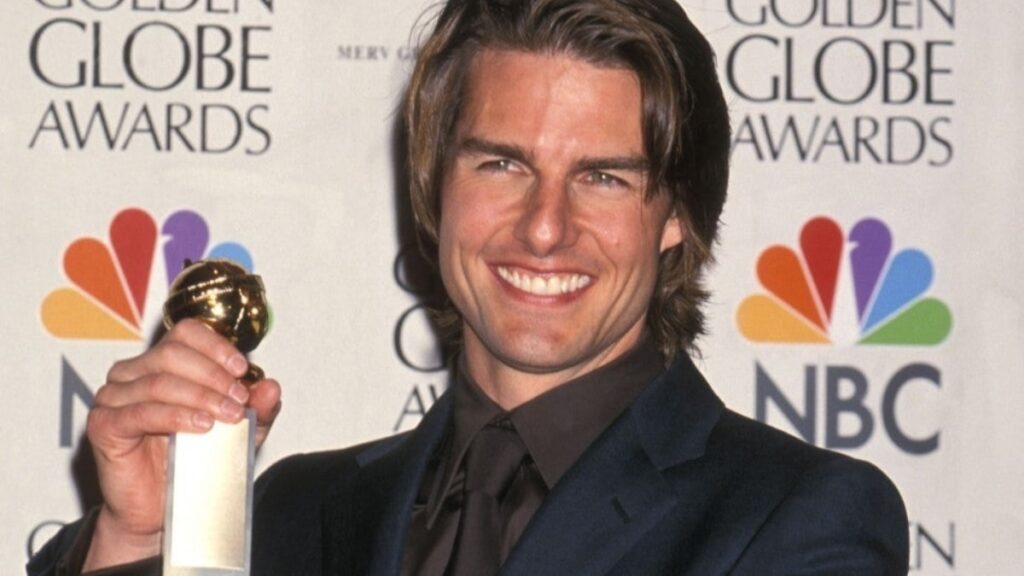
How does Anderson follow up a three-hour epic, that’s easy with a 95-minute comedy starring Adam Sandler?. Up next is Punch-Drunk Love. The book says we may be through with the past, but I say, we’re through with this post. Until next time, thanks for reading.